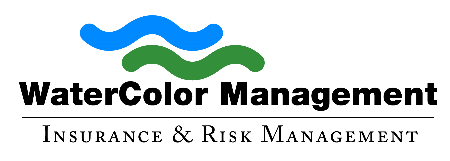
Water filtration insurance plays a vital role in protecting water treatment facilities from the financial burdens associated with potential contamination issues, ranging from lead to bacteria. As an insurance agent, it is essential to understand the intricacies of comprehensive water industry insurance, as it safeguards not only the facilities themselves but also the communities that rely on clean, safe drinking water.
Key Risks in Water Treatment
There are a few common contamination concerns to address.
Lead Contamination
Exposure to lead can cause developmental delays, learning difficulties, and even irreversible neurological damage. In severe cases, lead poisoning can lead to kidney failure and death. To mitigate these risks, water treatment facilities must adhere to strict regulatory standards, such as the EPA’s Lead and Copper Rule, which sets action levels for lead in drinking water.
Bacterial Contamination
Bacterial contamination is another concern in a water treatment program. Legionella, a bacterium that thrives in warm, stagnant water, can cause a severe form of pneumonia known as Legionnaires’ disease. E. coli, another common bacterial contaminant, can lead to gastrointestinal illnesses and, in extreme cases, kidney failure or even death.
Emerging Trends and Challenges
The water treatment industry faces evolving risks and challenges, making it essential for water treatment insurance agents to stay informed about emerging trends.
One such trend is the increasing focus on emerging contaminants, such as per- and polyfluoroalkyl substances, which result in various health problems and face growing regulatory scrutiny. As new contaminants arise, water treatment facilities may need to invest in advanced filtration technologies and adapt their processes to ensure compliance.
Tailoring Coverage for Water Treatment Programs
Securing comprehensive water industry insurance starts with thoroughly assessing the facility’s unique risks. They can vary significantly based on factors such as location, infrastructure, and treatment methods employed.
For example, a water treatment plant in an area with a history of lead contamination may require more extensive coverage for lead-related incidents. Similarly, facilities using older infrastructure or less advanced treatment technologies may be more susceptible to bacterial contamination.
Comprehensive water filtration insurance should include a range of key coverages to protect water treatment facilities against the multitude of risks they face. These coverages may consist of liability protection for bodily injury and property damage resulting from contamination incidents, as well as coverage for the costs associated with testing, remediation, and business interruption. Additionally, policies should offer coverage for legal expenses, regulatory fines, and penalties that may arise from contamination events.
Solutions for Insurance Agents
By collaborating with experienced insurers, agents can offer customized policies that effectively address the unique risks faced by water treatment facilities, such as lead and bacterial contamination. These partnerships provide access to industry-specific expertise and resources, enabling agents to deliver comprehensive coverage and support to their clients.
As the water treatment industry continues to evolve and face new challenges, insurance agents should prioritize the development of their knowledge and expertise in this field. By doing so, they can better serve their clients and contribute to the overall safety and sustainability of our water supply. Contact us today for more information about comprehensive water industry insurance coverage.
About Watercolor Management
Watercolor Management has insured the water industry for over 30 years. Our policies include unlimited defense cost coverage in the event of a lawsuit against you. Call us at (855) 929-0824 or email info@watercolormanagement.com for a quick quote for your Water Business Professional, Products/Completed operations, Pollution, and General Liability Insurance.




